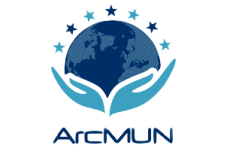UNESCO
United Nations Educational, Scientific and Cultural Organization (UNESCO) was established in 1945, in order to contribute to peace and security by building up international collaboration through reforms concerning education, science and culture and to reinforce universal respect for justice, the rule of law and human rights, along with fundamental freedom declared in the United Nations Charter.
The Organization has wide-reaching specific powers. UNESCO’s role is to support and promote comprehensive actions focusing both on safeguarding the access to quality and inclusive education and to a culturally enriched environment, where heritage connects people and generations, and on protecting the freedom of expression, strengthening in the same time democracy, and the right to diversity, human dignity, as well as the right to benefit from scientific breakthroughs and general development.
In doing so, the Organization takes the advice of the international, regional and national professional organizations concerned and of the National Commissions.
The Organization’s mandate is formally defined in Article 1, paragraph 3 of the Charter of the United Nations, and Article 1 of the UNESCO Constitution (1945).
The Organization has wide-reaching specific powers. UNESCO’s role is to support and promote comprehensive actions focusing both on safeguarding the access to quality and inclusive education and to a culturally enriched environment, where heritage connects people and generations, and on protecting the freedom of expression, strengthening in the same time democracy, and the right to diversity, human dignity, as well as the right to benefit from scientific breakthroughs and general development.
In doing so, the Organization takes the advice of the international, regional and national professional organizations concerned and of the National Commissions.
The Organization’s mandate is formally defined in Article 1, paragraph 3 of the Charter of the United Nations, and Article 1 of the UNESCO Constitution (1945).

